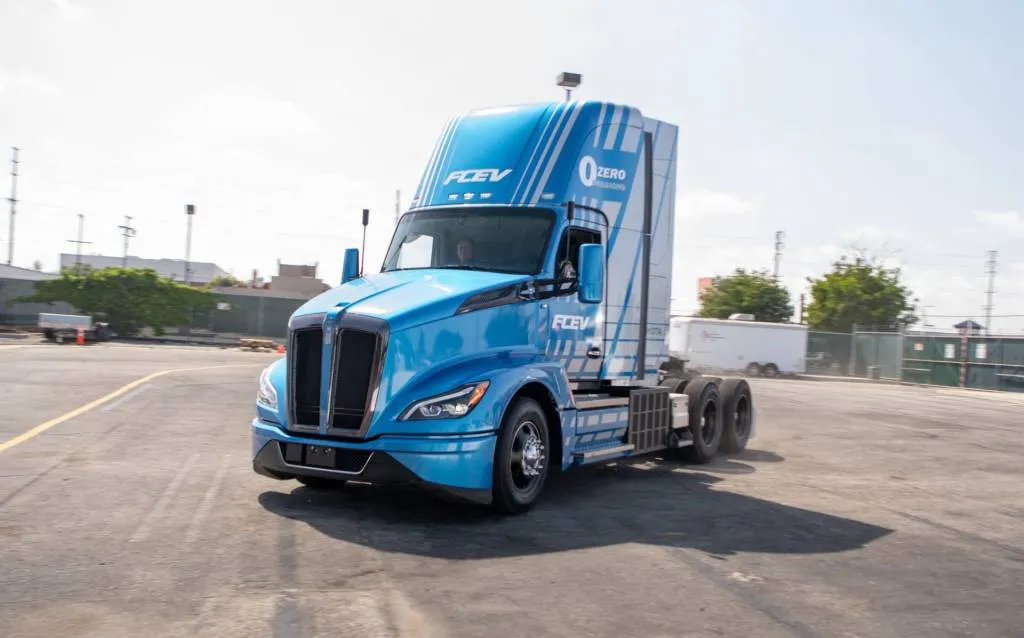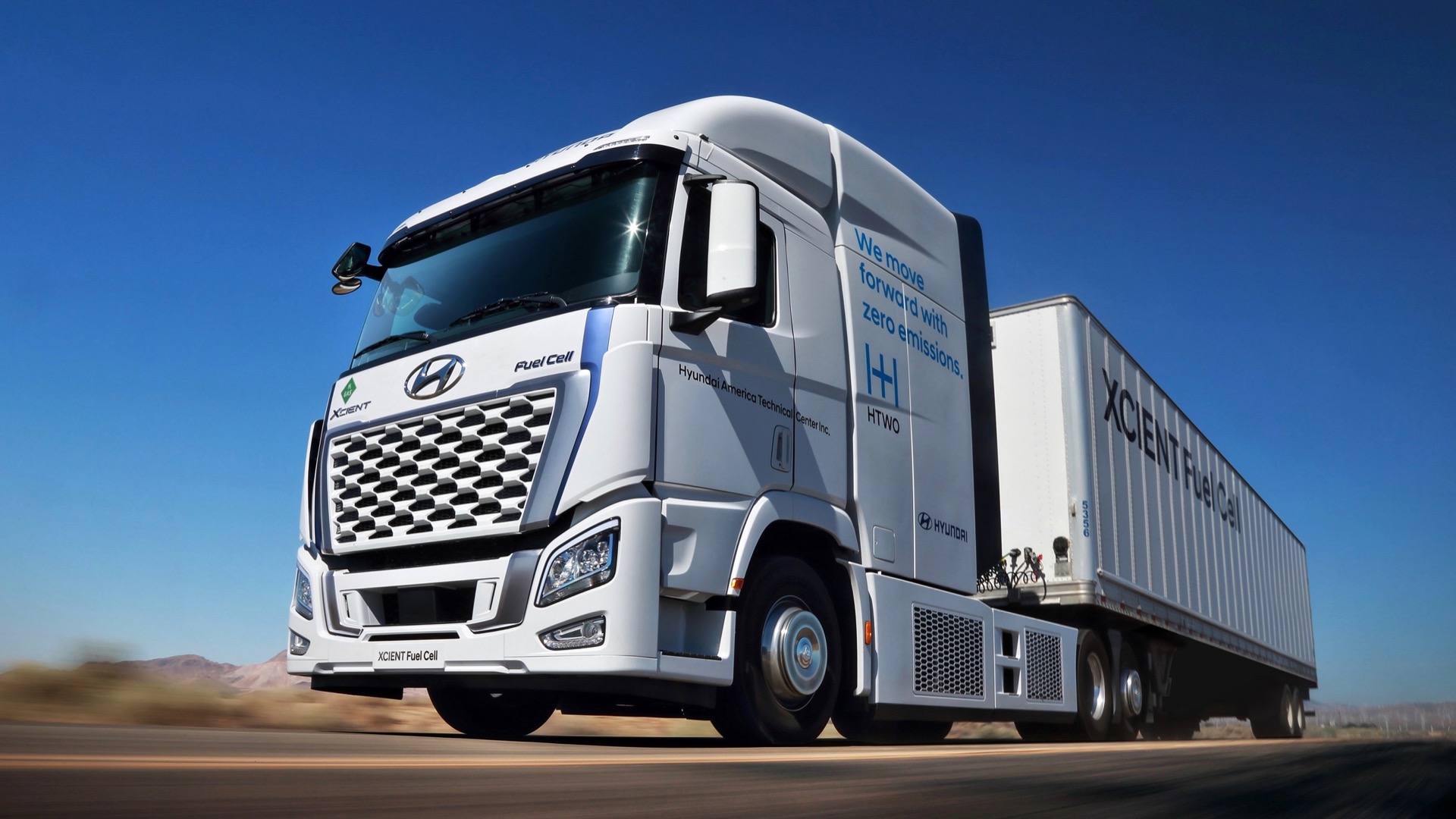Two House Democrats are demanding that the Department of Energy report projected lifecycle emissions for seven federally-funded hydrogen hubs.
First reported by Politico, Reps. Jamie Raskin of Maryland and Don Beyer of Virginia wrote a letter to the Energy Department’s of Office of Clean Energy Demonstrations (OCED) asking for clarification on the emissions from the $8 billion hydrogen hub project, which aims to scale up hydrogen production for transportation hydrogen uses like trucking.
Hydrogen could displace some fossil-fuel use, but its production can generate carbon emissions as well, including in the form of “grid emissions” from electricity used to power that production, the lawmakers noted in their letter.
Honda Class 8 Hydrogen Fuel Cell Truck Concept
“Scientists have warned that high levels of lifecycle emissions from hydrogen production could entirely cancel out any climate benefits from replacing fossil fuels with hydrogen,” they wrote, adding that the Energy Department has only thus far published projected greenhouse gas emissions savings from the hydrogen hubs—not the emissions associated with their operation.
The federal government has at least so far set a high bar for clean hydrogen handouts in the form of tax credits for hydrogen producers, known as the Clean Hydrogen Production Credit. That quelled concerns that dirtier fuels like coal would be used—although fuels like natural gas, methane, or others still need to be taken into account. Electrolysis powered by renewable energy is generally considered to be the lowest-emission option.

Kenworth-Toyota hydrogen fuel-cell semi prototype. – May 2024
Announced in 2021, the hydrogen hubs were finalized in 2023. The seven hubs—Mid-Atlantic, Appalachian, California, Gulf Coast, Heartland, Midwest, and Pacific Northwest—aim to produce more than three million metric tons of hydrogen per year, which will be used to eliminate 25 million metric tons of carbon emissions from end uses, the White House said at the time. That’s assuming those end uses materialize.
Assessments of how soon hydrogen could be cost-competitive with fossil fuels have been wildly optimistic. One 2020 study suggested it could happen by 2030, while a California Energy Commission study (also from 2020) suggested hydrogen could reach price parity with gasoline by 2025. Hydrogen prices have instead soared since then.



